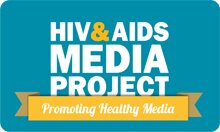Substance Use and Immune Health: What Everyone Should Know
The immune system protects the body from infections and diseases. It acts as a defense mechanism, fighting off harmful invaders like bacteria and viruses. Many factors influence immune health, including nutrition, sleep, and stress. One major but often overlooked factor is substance use.

Drugs, alcohol, and tobacco can weaken the immune system in different ways. They make the body more vulnerable to infections and slow down recovery. Understanding these effects is essential for making informed health decisions.
How the Immune System Works
The immune system is a complex network of cells and proteins. It detects and fights harmful pathogens, preventing illnesses. White blood cells play a critical role in this process. They identify and destroy viruses, bacteria, and other threats.
A strong immune system relies on balance. When the body is healthy, immune responses are quick and effective. But certain habits, like substance use, can disrupt this balance.
How Substance Use Affects the Immune System
Substance use weakens the body's natural defenses. It disrupts immune cell function, increases inflammation, and makes infections more likely. Over time, this damage leads to slower healing and higher risks of chronic illness. Different substances affect immunity in unique ways, but all forms of substance use take a toll on overall health.
At professional drug treatment centers like Radix Recovery individuals receive comprehensive care designed to strengthen both physical and mental well-being. With a focus on lasting recovery, their programs help people regain control, rebuild their health, and move forward with purpose.
Alcohol and Immune Suppression
Alcohol reduces the number of white blood cells in the body. This makes it harder to fight infections. Heavy drinking can also cause inflammation, damaging organs over time.
The liver is one of the most affected organs. It helps remove toxins from the body. When alcohol overwhelms the liver, harmful substances build up. This weakens immunity and increases the risk of diseases.
People who drink excessively are more likely to get sick. They are prone to respiratory infections, digestive issues, and slower wound healing. Even occasional binge drinking can impact immune response.
Tobacco and Respiratory Immunity
The respiratory system relies on tiny hair-like structures called cilia. These structures clear out mucus and harmful particles. Tobacco smoke damages them, making it easier for viruses and bacteria to enter the lungs.
Smokers face a higher risk of infections like pneumonia, bronchitis, and the flu. Their bodies also struggle to recover from illnesses. Wounds take longer to heal, and inflammation levels remain high. Over time, this weakens overall immunity.
Recreational Drugs and Immunity
Opioids, such as heroin and prescription painkillers, suppress white blood cell activity. This makes users more susceptible to bacterial and viral infections. Chronic opioid use is linked to a higher risk of pneumonia and tuberculosis.
Cocaine and methamphetamine damage the mucosal barriers in the nose and mouth. These barriers protect against infections. When they break down, bacteria and viruses enter the bloodstream more easily. Long-term users often experience frequent infections and slow healing.
Marijuana has a more complex effect on immunity. Some studies suggest it has anti-inflammatory properties. However, smoking marijuana can still harm the lungs. This increases the risk of respiratory infections, especially for heavy users.
Prescription Medications and Immune Function
Long-term use of opioids and steroids can weaken immune responses. Steroids, often prescribed for inflammation, suppress the immune system. They make users more vulnerable to infections.
People using these medications should follow medical advice carefully. Doctors often recommend lifestyle adjustments to support immunity.
The Connection Between Substance Use and Chronic Diseases
Many users develop long-term health conditions that further impair immune function.
Alcohol abuse can lead to liver disease, making it harder for the body to filter toxins. Smoking contributes to heart disease and lung conditions like COPD. Drug use increases the likelihood of infections such as HIV and hepatitis.
The gut also plays a role in immune health. Alcohol and drugs disrupt the gut microbiome, reducing beneficial bacteria. This weakens the immune response and increases inflammation.
Can the Immune System Recover?
Quitting substance use can improve immune function over time. However, recovery depends on several factors, including the duration and intensity of use.
The immune system begins to recover within weeks of quitting. White blood cell levels return to normal, and inflammation decreases. Lung function improves, and the liver starts repairing itself.
For heavy users, full recovery may take months or even years. The process is gradual, but the benefits are significant. A healthier immune system means fewer illnesses, faster recovery, and better overall well-being.
How to Support Immune Health While Recovering
Recovering from substance use requires a holistic approach. The immune system needs proper nutrition, rest, and lifestyle changes.
Eating for Immune Strength
A balanced diet provides the body with essential nutrients. Vitamins C and D, zinc, and probiotics all support immune function. Hydration is also crucial. Water helps flush out toxins and keeps the body functioning properly.
The Role of Sleep
The body repairs itself during rest, strengthening defenses against infections. Poor sleep weakens immunity, making recovery harder.
Managing Stress Without Substances
Stress affects immune health, and many people turn to substances to cope. Finding healthier stress management techniques is important. Meditation, exercise, and therapy can all help. Reducing stress naturally supports immune function.
Exercise and Recovery
Moderate exercise improves circulation, helping white blood cells move efficiently. However, overexertion can weaken immunity. Balance is essential for long-term health.
Conclusion
Substance use has a direct impact on immune health. Alcohol, tobacco, and drugs weaken the body's defenses, making infections more likely. Over time, this leads to chronic health issues and slower recovery.
The good news is that the immune system can heal. Quitting substance use, eating well, sleeping better, and managing stress all contribute to recovery. With the right approach, it’s possible to rebuild a strong and resilient immune system.

